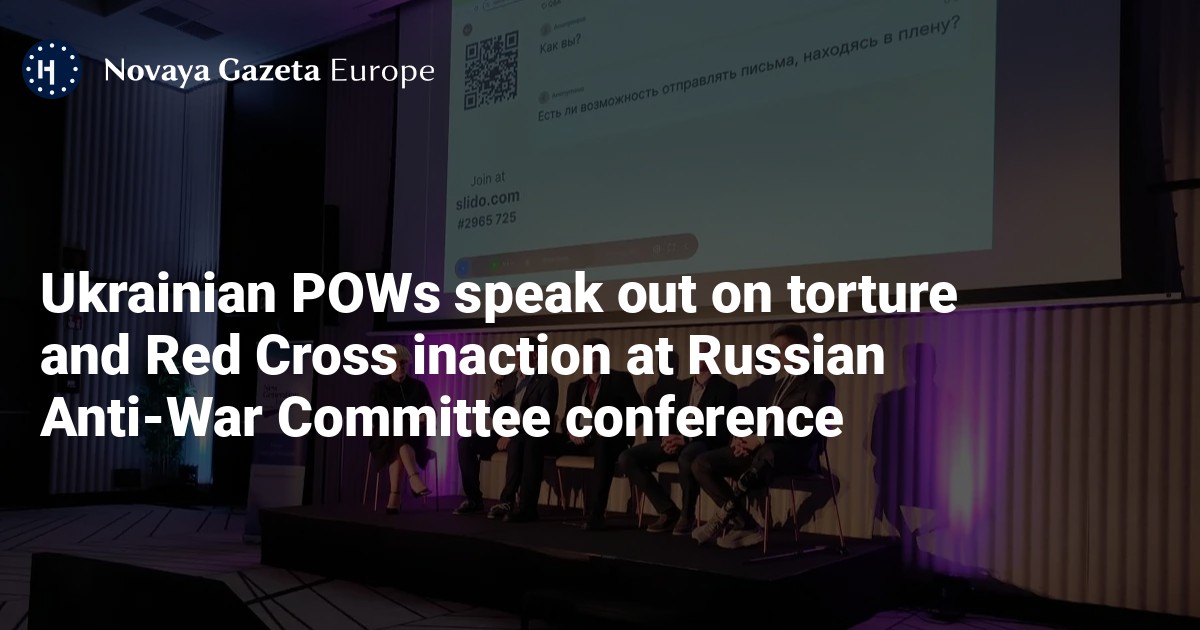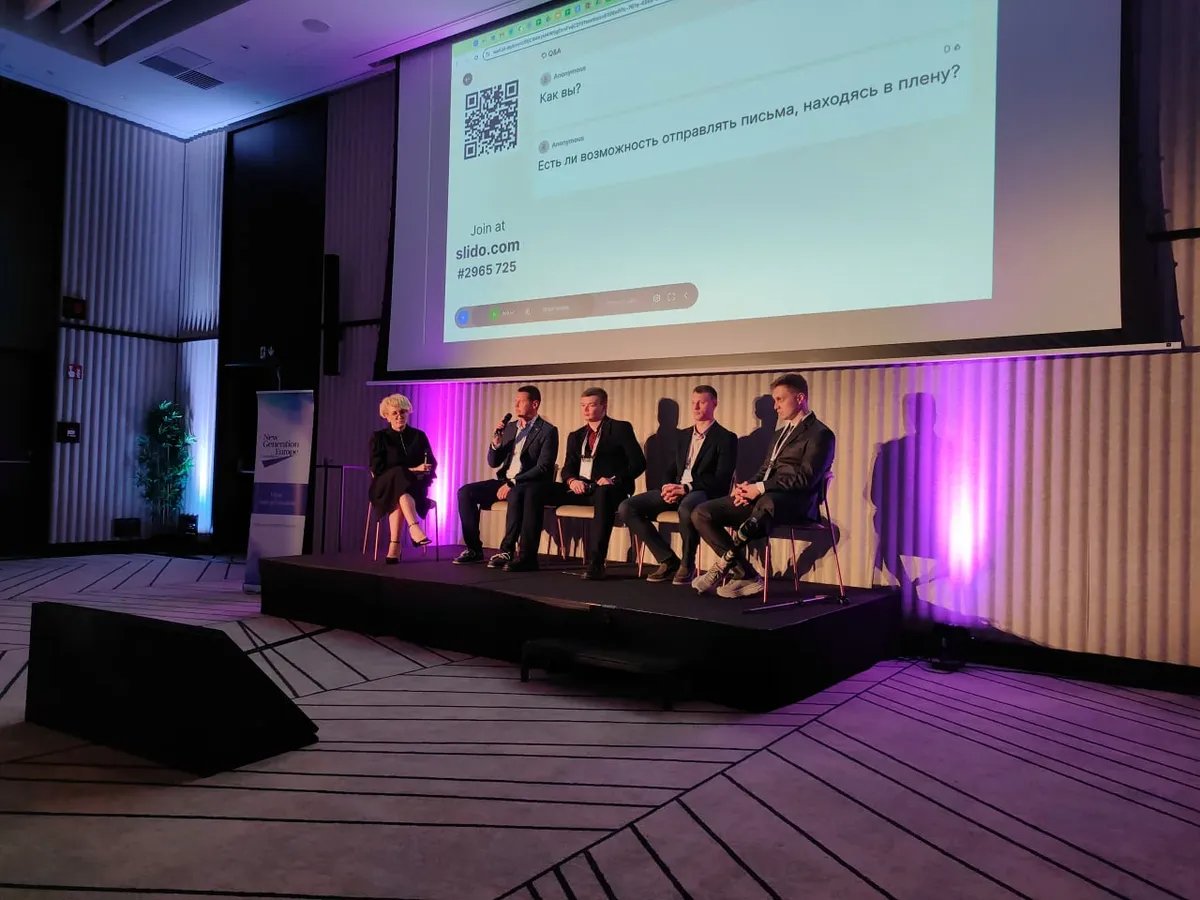




Photo: Novaya Gazeta Europe
Four recently released Ukrainian soldiers gave testimony about the torture they endured while in Russian captivity and condemned the inaction of the Russian Red Cross as they spoke at a Russian Anti-War Committee conference in Brussels, Novaya Gazeta Europe reported from the event on Wednesday.
The event began with a minute’s silence to honour the memory of the 70 Ukrainian prisoners of war who have died in Russian prisons since the beginning of the full-scale invasion. The soldiers, members of Ukraine’s 36th Marine Brigade and the Azov Brigade, addressed the gathering and responded to questions from the audience.
Volodymyr Labuzov, former head of the medical service for Ukraine’s 36th Marine Brigade, spent 10 months in captivity, despite being a medic — a role protected under international humanitarian law. Labuzov accused Russia of systematic violations of these legal norms, highlighting the deliberate targeting of medical personnel who should be considered non-combatants under the Geneva Conventions.
Another soldier from the same brigade, Vladyslav Hatsun, accused representatives of the Russian Red Cross of turning a blind eye to evidence of abuse. According to Hatsun, Red Cross employees dismissed visible injuries on prisoners, saying that the men were “tough” and would be “just fine”.
“Needles under the fingernails — that’s the mildest thing you encounter.”
Junior sergeant Yevhen Malik, who spent two and a half years in captivity, said psychological and physical abuse were daily occurrences, describing interrogation rooms laid out with torture tools and water bottles used for resuscitation.
“Needles under the fingernails — that’s the mildest thing you encounter,” Malik said. “You go into an interrogation, and the instruments are already lined up … That’s standard practice. I can’t understand how the same people who tortured us could call us fascists.”
Malik also pointed to what he saw as a stark contrast between the treatment of Russian POWs in Ukraine and that of Ukrainians in Russian custody. “I’ve seen videos on YouTube of Russian prisoners in Ukraine. They speak freely on camera about how ‘Putin did everything right’. I think they’re more afraid of what awaits them back in Russia than anything else. If I had said something like that in Russian captivity, I wouldn’t have made it out alive.”
A soldier from the Azov Brigade, known by his call sign Wikipedia, who lost a leg in the war, explained his reasons for speaking publicly at the event.
“There were all kinds of people among the prison staff. There are some I would personally testify for in court if it came to that. And that tells me not everything is lost. I came here today to say thank you to them.”
However, he remained critical of Russia’s role in the war, adopting what he called a “presumption of guilt” towards all Russian nationals, unless proven otherwise.
He continued: “The world has no moral right to allow Ukraine to lose territory. Because for Putin, that would mean it worked — that it was allowed. That’s not in the interests of the Russian people either. If Ukraine gives up land, it will only encourage Putin to send more people to die.”
The panel was moderated by Anastasia Shevchenko, coordinator of a project supporting Ukrainian POWs and a representative of the Russian Anti-War Committee, founded by a group of exiled Russian public figures opposing the Kremlin’s policies following the full-scale invasion of Ukraine.
